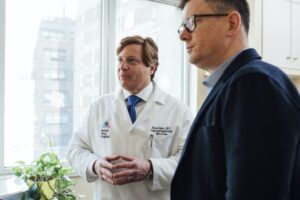These are difficult times for recovering addicts and alcoholics. Isolation (both physical and psychological) are at an all-time high. 12-step meetings have been shut down. Relapses on alcohol and drugs are on the rise (both statistically and in terms of my own personal impression). ALL mental illnesses (not only alcohol and substance dependency) are presently under attack by their number one enemies: loneliness and isolation. Suicide risk is greatly increased in these circumstances. What can be done when traditional 12-step meetings are no longer available; when one can no longer see one’s family doctor face to face, one’s psychologist, psychiatrist, sponsor, spiritual advisor or even friends or family members?
In addition to being diagnosed with opiate dependency in 1991, I was diagnosed with bipolar disorder in 2005 and more recently, post-traumatic stress disorder (P.T.S.D.). Many of the practical suggestions I offer in this blog have been implemented by me in an effort to ward off the isolation that I embrace all too easily and naturally in these difficult times. My P.T.S.D. symptoms in particular seem to draw me to avoidance behaviours which are short-term maladaptive solutions. Isolating at home comes very naturally to me. The same tendencies to isolate can be seen in alcoholism, substance dependency, and many other psychiatric illnesses; many of the people I have met in Recovery have observed in themselves these same maladaptive tendencies to isolate. What could be more dangerous for us than to (gladly) comply with social isolation and do nothing for our Recovery?
Solutions to Combat Loneliness and Isolation:
In Person
It is important to remember that 12-step Recovery meetings can be held with as little as two or three people. Therefore, these meetings can be held reasonably safely (with social distancing, face masks, and in small numbers) in private homes, parks, gardens, etc… One-on-one meetings with one’s 12-step sponsor can also take place safely with the above reasonable precautions. Spiritual advisors, friends and family members likewise may be available. The point is that you are no longer alone as long as there is as little as one other human being spending time with you.
Exercise
With improved weather and loosening restrictions, getting out and exercising is a proven and effective treatment for depression and substance dependency. This should be undertaken either alone or with family members as opposed to groups. At most, exercise with one or two friends, with appropriate social distancing, and preferably with face masks. Exercise options may include walking, jogging, cycling, kayaking, gardening, etc… Exercise greatly reduces the sense of isolation, improves outlook, mood, energy and health, and greatly reduces stress in these difficult times.
Phone Calls
Before I briefly describe high-tech solutions, it is worth remembering that the telephone has been around for well over one hundred years and that it is a wonderful device (if one uses it) for combating loneliness, depression and relapse, especially in the era of Covid-19. A call to a friend in Recovery or one’s sponsor or spiritual advisor can be life-saving. My psychologist can no longer see me in his office but I speak to him on the phone one hour every week (and at reduced rates!). Likewise, my family doctor is available by phone. The group I attend for health professionals in Recovery has unfortunately been cancelled temporarily, but the facilitator of the group is still available both by phone and in his office. I mention the telephone (a 19th century invention) because an awful lot of relapses and suicides occur simply because a phone call was not made. Suicide Prevention lines and Stress hot-lines are likewise available in most communities.
Technology
Finally, the internet age provides us with technology that allows us access to meetings on-line: ZOOM, Skype and other apps provide audio-visual communication with others in Recovery. It is truly a wonderful (and relatively recent) addition to our Recovery tool kit and for many people, has come to represent the only remaining means of attending Recovery meetings regularly. The virtual split-screen imaging closely mimics the experience of an in-person meeting and is truly an invaluable asset. I strongly recommend joining at least one regular on-line Recovery group until such time as in-person meetings can safely resume.




2 Comments
Leave your reply.